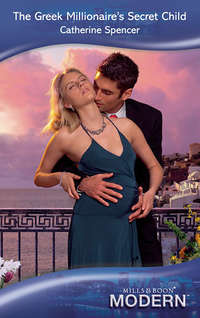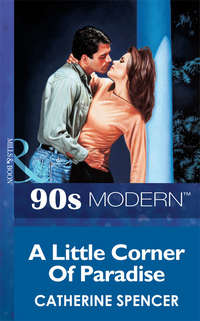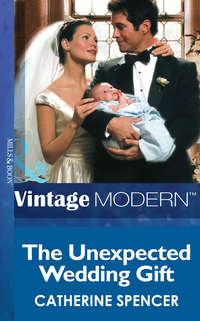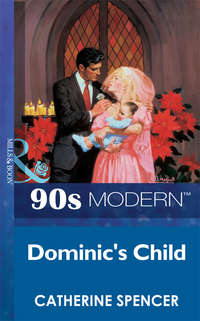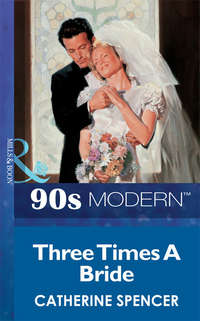
Полная версия
Sicilian Millionaire, Bought Bride
CHAPTER TWO
SHE RETURNED to the main room to find the moon casting an icy swath across the ink-black waters of the harbor. Within the suite, a floor lamp poured a pool of warm yellow light over the love seat next to the window, but at the linen-draped dining table, candles now shimmered over the crystal and silverware, and lent a more subtle blush to a centerpiece of cream roses. She was glad of that. Candlelight was much kinder, its subdued glow helping to disguise her reddened eyes, bereft now of any trace of mascara.
Raffaello Orsini held out her chair before taking a seat opposite, and nodding permission for the hovering waiter to pour the wine, a very fine sparkling white burgundy. Still shaken from rereading Lindsay’s letter, Corinne could barely manage a taste, and was sure she’d never be able to swallow a bite of food. She deeply regretted having accepted her host’s imperious invitation. Quite apart from the fact that her composure lay in shreds, she knew she looked a mess, and what woman was ever at her sharpest under those circumstances?
At least he had the good grace not to comment on her appearance, or her initial lack of response to his conversation. Instead, as braised endive salad followed a first course of crab and avocado pâté served on toast points, with foie gras-stuffed quail bathed in a sherry vinaigrette as the entrée, he regaled her with an amusing account of his tourist experiences earlier in the day. And almost without her realizing, she was coaxed into doing at least some justice to a meal he’d clearly taken great pains to make as appealing as possible.
By the time dessert arrived, a wonderful silky chocolate mousse she couldn’t resist, a good deal of her tension had melted away. The man oozed confidence, and reeked not so much of wealth, although he clearly had money to burn, but of the power that went with it. A heady combination, she had to admit. Watching him, enjoying his dry wit and keen observations, and more than a little dazzled by the smile he allowed so sparingly, she was almost able to push aside the real reason for their meeting and pretend, just for a little while, that they were merely a man and woman enjoying an evening together.
Lulled into a comfortable haze induced by candlelight, and a voice whose exotic cadence suggested an intimacy worth discovering, if only she dared, she almost relaxed. He was a complex man; an intriguing contradiction in terms. His wafer-thin Patek Philippe watch, handmade shoes and flawlessly tailored suit belonged to a CEO, a chairman of the board, a tycoon at his best wheeling and dealing megamillions in the arena of international business. Yet the contained strength of his body suggested he could sling a goat over one shoulder and scale a Sicilian mountainside without breaking a sweat. Despite that, though, there was absolutely nothing of the rustic in him. He was sophistication personified, and much too charming and handsome for his own good.
Or hers. Because, like a hawk luring a mouse into the open, he suddenly struck, diving in for the kill before she realized she’d left herself vulnerable to him. “So far, I’ve done all the talking, signora. Now it’s your turn. So tell me, please, what is there about you that I might find noteworthy?”
“Not much, I’m afraid,” she said, disconcerted by the question, but not yet suspecting where it would lead. “I’m a single, working parent, with very little time to do anything noteworthy.”
“Too occupied with making ends meet, you mean?”
“That about covers it, yes.”
“What kind of work do you do?”
“I’m a professional chef.”
“Ah, yes. I remember now that my wife once mentioned that. You were snapped up by a five-star restaurant in the city, as I recall.”
“Before my marriage, yes. After that, I was a stay-athome wife and mother. When my husband died, I…needed extra income, so I opened a small catering company.”
“You’re now self-employed, then?”
“Yes.”
“You hire others to help you?”
“Not always. At first, I could handle the entire workload alone. Now that my clientele has increased, I do bring in extra help on occasion, but still do most of the food preparation myself.”
“And offer a very exclusive service to your patrons, I’m sure.”
“Yes. They expect me to oversee special events in person.”
“A demanding business, being one’s own boss, don’t you find? What prompted you to tackle such an undertaking?”
“It allowed me to be at home with my son when he was a baby.”
“Resourceful and enterprising. I admire that in a woman.” He steepled his fingers and regarded her sympathetically. “How do you find it, now that your son’s older?”
“It’s not so easy,” she admitted. “He’s long past the age where he’s content to play quietly in a corner while I create a wedding buffet for sixty people.”
He allowed himself a small, sympathetic smile. “I don’t doubt it. So who looks after him when you’re away taking care of the social needs of strangers?”
“My next-door neighbor,” she replied, wincing inwardly at his too-accurate assessment of her clientele. “She’s an older woman, a widow and a grandmother, and very reliable.”
“But not quite as devoted to him as you are, I’m sure.”
“Is anyone ever able to take a mother’s place, Mr. Orsini?”
“No, as I have learned to my very great cost.” Then switching subjects suddenly, he said, “What sort of place do you live in?”
Bristling, she snapped, “Not a hovel, if that’s what you’re implying,” and wondered how much Lindsay had told him about her straitened circumstances.
“I didn’t suggest that it was,” he returned mildly. “I’m merely trying to learn more about you. Paint the appropriate background to a very attractive portrait, if you like.”
Mollified enough to reply less defensively, she said, “I rent a two-bedroom town house in a gated community several miles south of the city.”
“In other words, a safe place where your son can play in the garden without fear that he might wander away.”
She thought of the narrow patio outside her kitchen, the strip of lawn not much bigger than a bath towel that lay beyond it and her neighbors on the other side, the Shaws—a crusty old couple in their eighties, who complained constantly that Matthew made too much noise. “Not exactly. I have no garden as such. I take him to play at a nearby park instead, and if I’m not available, my sitter takes him for me.”
“But there are other children he can visit in this gated community, boys his own age, with similar interests?”
“Unfortunately not. Most residents are older—many, like my baby-sitter, retired.”
“Does he at least have a dog or cat to keep him company?”
“We aren’t allowed to own pets.”
He raised his elegant black brows. “Dio, he might as well be in prison, for all the freedom he enjoys.”
In truth, she couldn’t refute an opinion which all too closely coincided with her own, but she wasn’t about to tell him so. “Nothing’s ever perfect, Mr. Orsini. If it were, our children wouldn’t be growing up with one parent standing in for two.”
“But they are,” he replied. “Which brings me to my next question. Now that you’ve had time to recover from the initial shock, what is your opinion on the content of the letters?”
“What?” She raised startled eyes to his and found herself impaled in a gaze at once penetrating and inscrutable.
“Your opinion,” he repeated, a sudden hint of steel threading his words. “Surely, Signora Mallory, you haven’t forgotten the real reason you’re here?”
“Hardly. I just haven’t given the matter…much thought.”
“Then I suggest you do so. Enough time has passed since my wife wrote of her last wishes. I do not propose to delay honoring them any longer than I have to.”
“Well, I do not propose to be bullied, Mr. Orsini, not by you or anyone else. Since you’re so anxious for an answer, though, let me be blunt. I can’t see myself ever agreeing to Lindsay’s request.”
“Her friendship meant so little to you, then?”
“Save the emotional blackmail for someone else,” she shot back. “It’s not going to work with me.”
His smoky-gray eyes darkened. With suppressed anger? Sorrow? Frustration? She couldn’t tell. His expression gave away nothing. “Emotion does not play a role in this situation. It is a business proposition, pure and simple, devised solely for the benefit of your child and mine. The most convenient way to implement it is for you and me to join forces in marriage.”
“Something I find totally unacceptable. In case you’re not aware, marriages of convenience went out of fashion in this country a long time ago. Should I ever decide to marry again, which is doubtful, it will be to someone of my own choosing.”
“It seems to me, Signora Mallory, that you’re in no position to be so particular. By your own admission, you do not own your own home, which leaves you at the mercy of a landlord, you’re overworked and your son spends a great deal of time being cared for by someone other than yourself.”
“At least I have my independence.”
“For which both you and your boy pay a very high price.” He regarded her silently a moment, then in a seductively cajoling tone, went on, “I admire your spirit, cara mia, but why are you so set on continuing with your present lifestyle, when I can offer you so much more?”
“For a start, because I don’t like having charity forced down my throat.” And calling me cara mia isn’t going to change that.
“Is that how you see this? Do you not understand that, in our situation, the favors work both ways—that my daughter stands to gain as much from the arrangement as your son?”
Absently Corinne touched a fingertip to the velvet-soft petals of the nearest rose. They reminded her of Matthew’s skin when he was a baby. Before he’d turned into a tyrant.
…Raffaello will do his best to keep me alive in her heart, but having you to turn to would be the next best thing to having me, Lindsay had written, or words to that effect. I’m entrusting you with my daughter’s life, Corinne….
Seeming to think she was actually considering his proposal, Raffaello Orsini asked, “Are you afraid I’m going to demand my husbandly rights in the bedroom?”
“I don’t know. Are you?” Corinne blurted out rashly, too irked by the faint hint of derision in his question to consider how he might interpret her reply.
“Would you like me to?”
She opened her mouth to issue a flat denial, then snapped it closed as an image swam unbidden into her mind, shockingly detailed, shockingly erotic, of how Raffaello Orsini’s naked body might look. Her inner response—the jolt of awareness that rocked her body, the sudden flush of heat streaming through her blood—appalled her.
She’d moved through the preceding four years like an automaton, directing all her energies to providing a safe, stable and loving home for her son. As breadwinner, the one responsible for everything from rent to medical insurance to paying off debts incurred by her late husband, she’d had no choice but to put her own needs aside. To be assaulted now by this sudden aberration—for how else could she describe it?—was ridiculous, but also an untimely reminder that she was still a woman whose sexuality might have been relegated to the back burner, but whose flame, it seemed, had not been entirely extinguished.
“Don’t feel you have to make up your mind on that point at this very moment,” Orsini suggested smoothly. “The welfare of two children is the main issue here, not sexual intercourse between you and me. I shall not press you to consummate the marriage against your will, but you’re an attractive woman and as a hot-blooded Sicilian, I would not spurn your overtures, should you feel inclined to make any.”
Hot-blooded Sicilian, maybe, she thought, staggered by his arrogance, but it’ll be a cold day in hell before I come begging for sexual favors from you. “There’s not the slightest chance of that ever happening, for the simple reason that I have no intention at all of agreeing to your proposition. It’s a lousy idea.”
“Why? What’s wrong with two adults uniting to create a semblance of normal family life for their children? Don’t you think they deserve it?”
“They deserve the best that we can give them—and that is not by having their respective parents marry for all the wrong reasons.”
“That would be true only if we were deluding ourselves into believing our hearts are engaged, signora, which they most certainly are not. Rather, we’re approaching this from a cerebral angle. And that, in my opinion, vastly increases our chances of making the union work.”
“Cerebral?” She almost choked on her after-dinner coffee. “Is that how you’d define it?”
“How else? After all, it’s not as if either of us is looking for love in a second marriage, both of us having lost our true soul mates, the first time around. We harbor no romantic illusions. We’re simply entering into a binding contract to improve our children’s lives.”
Unnerved as much by his logic as his unremitting gaze, she left the table and went to stand at the window. “You omit to mention the extent to which I would benefit financially from such an arrangement.”
“I hardly consider it important enough to merit attention.”
“It is to me.”
“Why? Because you feel you’re being bought?”
“Among other things, yes.”
“That’s ridiculous.”
She shrugged. “Finally we agree on something. In fact, the whole idea’s preposterous. People don’t get married for such reasons.”
“Why do they get married?”
Beleaguered by his relentless inquisition, she floundered for a reply and came up with exactly the wrong one. “Well, as you already made clear. For love.”
Yet in the end, at least for her, life had rubbed off all the magic, and what she’d believed was love had turned out to be lust. Infatuation. Make-believe. An illusion. The only good thing to come out of her marriage had been Matthew, and if Joe had lived, she knew with certainty that they’d have ended up in divorce court.
From across the room, Raffaello Orsini’s hypnotic voice drifted into the silence, weaving irresistible word pictures. “You would be marrying for love this time, too. For love of your son. Think about him, cara mia. Hear his laughter as he runs and plays with a companion, in acres of gardens. Imagine him building sand castles on a safe, secluded beach, or learning to swim in warm, crystal clear waters. See yourself living in a spacious villa, with no monetary cares and all the time in the world to devote to your child. Then tell me, if you dare, that our joining forces is such a bad idea.”
He was offering Matthew more than she could ever hope to provide, and although pride urged her not to be swayed by what was, in effect, a blatant bribe, as a mother she had to ask herself if she had the right to deprive her son of a better life. Yet to sell herself to the highest bidder… what kind of woman did that make her?
Torn, confused, she considered her options.
Money could buy just about anything, and it was all very fine for high-minded people to scorn it as the root of all evil, but until they found themselves having to scrape and save every last cent in order to make ends meet, they were in no position to cast judgment on those who faced just such a situation every day.
On the other hand, it was claimed by those who ought to know that there were never any free lunches, and if something seemed too good to be true, it probably was. The kind of lopsided bargain Raffaello Orsini was proposing might well end up costing more than it was worth. Would she really be doing Matthew any favors if she ended up losing her self-respect?
Marshaling her thoughts, she said, “You’ve gone to great pains to explain how the arrangement might benefit me, Mr. Orsini, but exactly what’s in it for you?”
From the corner of her eye, she saw him go to the bar and pour cognac into two brandy snifters. “When Lindsay died,” he replied, joining her at the window and passing one glass to her, “my mother and aunt moved into my house, to take care of Elisabetta and, if I’m to speak with truth, to take care of me, too. It’s as well that they did. At the time, I was too angry, too wrapped up in my own grief, to be the kind of father my daughter deserved. These two good women put their own lives on hold and devoted themselves to ours.”
“You were very lucky that they were there when you needed them.”
He swirled his brandy and warmed the bowl of the glass between his hands. “Very lucky, yes, and very grateful, too.”
She heard the reservation in his tone and glanced at him sharply. “But?”
“But they have indulged Elisabetta to the point that she is becoming unmanageable, and I am at a loss to know how to put a stop to that without hurting their feelings. She needs a consistently firm hand, Corinne, and I am not doing such a good job of providing one, in part because the demands of my work take me away from home at times, but also because…” He shrugged ruefully. “I am a man.”
His use of her first name left Corinne giddy with such insane pleasure that she lost all control over her tongue. “So I’ve noticed.” Then appalled at how he might interpret her answer, she rushed to explain, “What I mean is, that like most of your breed, you seem to think because you decree something, it shall be done.”
He actually laughed at that, the sound as rich and dark as buckwheat honey, then just as suddenly sobered. “You’ve read Lindsay’s letters. You know what she wanted. What you can do for me, Corinne, is carry out her dying wishes. Take her place in Elisabetta’s life. Shape my daughter into the kind of woman that would make her mother proud.
“It will be no easy task, I assure you, so if, as I suspect, you think I’m the one doing all the giving, please think again. What I offer to you can, for the most part, be measured in euros. It is impossible to put a price on what you have to offer to me.”
“You’re very persuasive, Mr. Orsini, but the fact remains, logistics alone make the idea impractical on any number of fronts.”
“Name one.”
“I signed a three-year lease on my town house.”
“I will break it for you.”
“I have obligations…debts.”
“I will discharge them.”
“I don’t want your money.”
“You need my money.”
He had an answer for everything. At her wit’s end, she took a different tack. “What if you don’t like my son?”
“Are you likely to dislike my daughter?”
“Of course not. She’s just a child. An innocent little girl.”
His raised hand, palm facing up, spoke more eloquently than words. “Exactly. Our children are the innocents, and we their appointed guardians.”
“You’d expect me to disrupt my son’s life and move to Sicily.”
“What is there to keep you here? Your parents?”
Hardly. Their disenchantment with her had begun when she was still in her teens.
A chef? they’d sneered, when Corinne had shared her ambitions with them. Is slaving over a hot stove all day the best you can aspire to after the kind of education we’ve given you? What will people think?
But that was nothing compared to their reaction when Joe entered the picture. Marry that fly-boy Joe Mallory, young lady, and you’re on your own, her father had threatened.
Determined to have the last word as usual, her mother had added, Your father’s right. But then, you never did use the brains God gave you, otherwise you’d have chosen that nice accountant you were dating last year, before he got tired of being strung along and ended up marrying someone else.
That they’d ultimately been proved right about Joe did nothing to lessen Corinne’s sense of abandonment. She couldn’t imagine ever turning her back on Matthew. Parents just didn’t do that to their children. But hers had, and shown not a speck of remorse about it.
“No,” she told Raffaello Orsini. “They retired to Arizona and we seldom visit.”
“You are estranged?”
“More or less,” she admitted, but didn’t elaborate.
He closed the small distance between them and with a touch to her shoulder swung her round to face him. “Then all the more reason for you to marry me. I come with instant family.”
“I don’t speak Italian.”
“You will learn, and so will your boy.”
“Your mother and aunt might resent a stranger coming into the household and taking over.”
“My mother and aunt will accede to my wishes.”
Once again, he had an answer for everything. “Stop badgering me!” she cried, desperation lending an edge of hysteria to her voice. No matter how real the obstacles she flung in his path, he steamrolled over it and confronted her with an even better reason why she, too, should accede to his wishes. And if she didn’t put a stop to him now, she’d end up surrendering to his demands from sheer battle fatigue.
“Ti prego, pardonami—forgive me. You’re in shock, as was I when I first read my wife’s letters, and for me to expect you to reach a decision at once is both unreasonable and inexcusable.”
His response, uttered with heartfelt regret, so far undermined her battered defenses that, to her horror, she heard herself say. “Exactly. I need some time to assimilate the benefits and the drawbacks, and I can’t do it with you breathing down my neck.”
“I absolutely understand.” He strode to the desk, returned with an envelope containing several photographs, which he spilled onto the coffee table. “Perhaps these will help clarify matters for you. Would you like me to leave you alone for a few minutes so that you may examine them?”
“No,” she said firmly. “I would like to go home and take my time reaching a decision, without the pressure of knowing you’re hovering in the background.”
“How much time? I must return to Sicily as soon as possible.”
“I’ll have an answer for you tomorrow.” In all truth, she had an answer for him now, but it wasn’t the one he wanted to hear, so she might as well keep it to herself and make her escape while she could. The sooner she put distance between him and her, the less likely she was to find herself agreeing to something she knew was out of the question.
“Fair enough.” He slid the photographs back into their envelope, tucked it in the inside pocket of his jacket, then retrieved her coat and, after draping it around her shoulders, picked up the phone. “Give me a moment to alert the driver that we’re ready for him.”
“You don’t need to come down with me,” she said, after he’d made the call. “I can find my own way.”
“I’m sure you can, Corinne,” he replied. “You strike me as a woman who can do just about anything she puts her mind to. But I will accompany you nevertheless.”
All the way back to her town house? She sincerely hoped not. Bad enough that his effect on her was such that she hadn’t been able to issue an outright refusal to his ludicrous proposition. The enforced intimacy of a forty-minute drive with him in the back of a dark limousine, and there was no telling what she might end up saying.
As it turned out, he had no such intention. He walked her through the lobby and out to where the limousine waited, handed her into the backseat then, at the last minute, withdrew the envelope from his pocket and dropped it in her lap. “Buena notte, Corinne,” he murmured, pinning her in his mesmerizing gaze. “I look forward to hearing from you tomorrow.”
CHAPTER THREE
SHE FLUNG HIM a baleful look and tried to return the envelope to him, but the wretched thing fell open and released its contents, which slithered in disarray over the leather upholstery. By the time she’d scooped them up, the door had clicked shut and the car was moving smoothly into the downtown traffic.
Wearily—she seemed to have been fighting one thing or another ever since the evening began, starting with Matthew’s tantrum at once again being left in Mrs. Lehman’s care—Corinne stuffed the photographs into her purse. Just because Raffaello Orsini had decreed that she should accept them didn’t mean she had to look at them, did it? She’d send them back to him by courier tomorrow, along with her rejection of his proposal.




